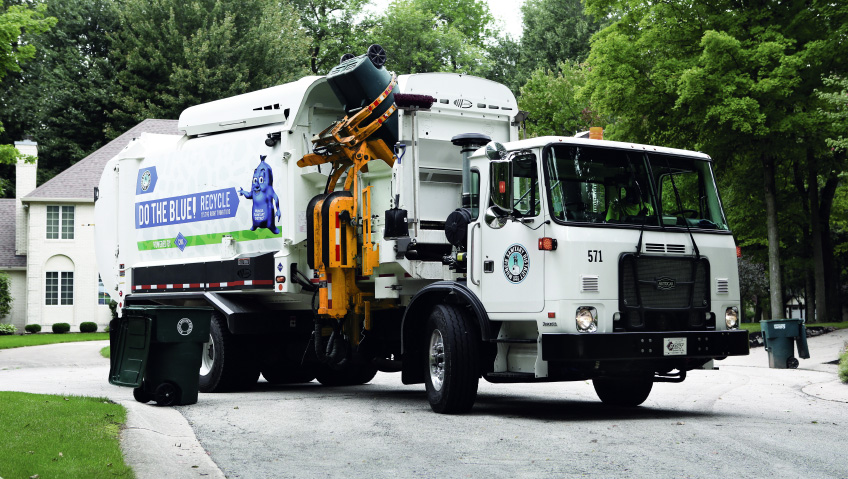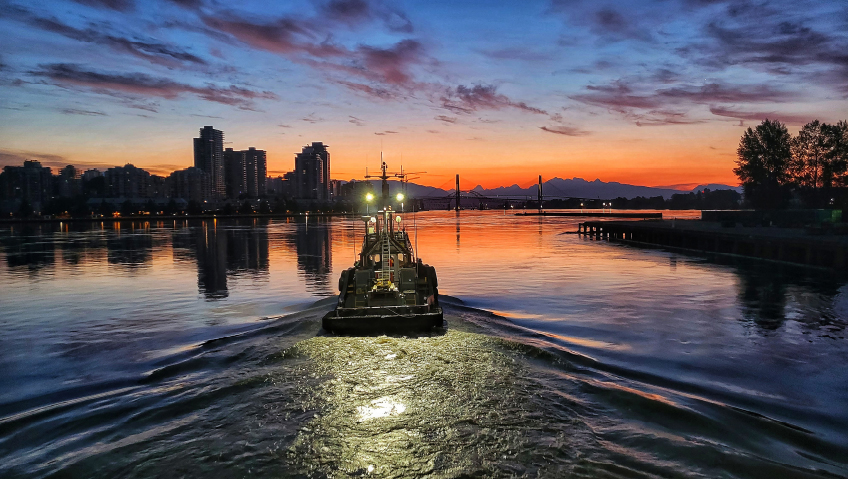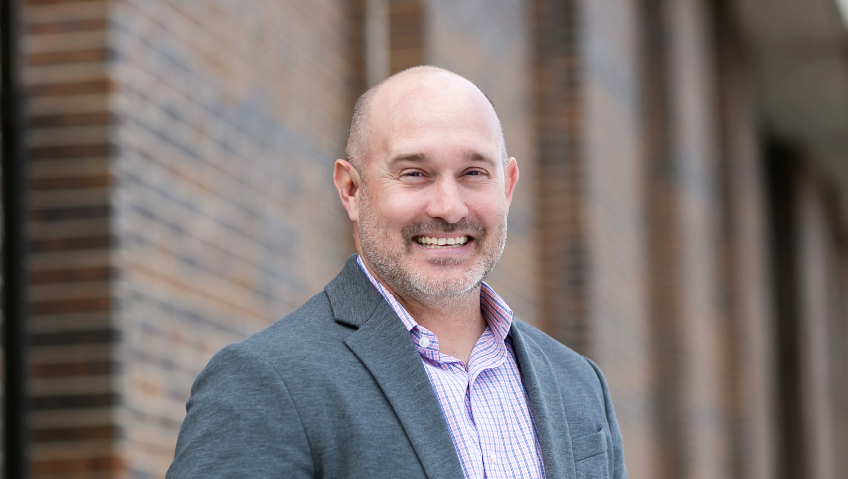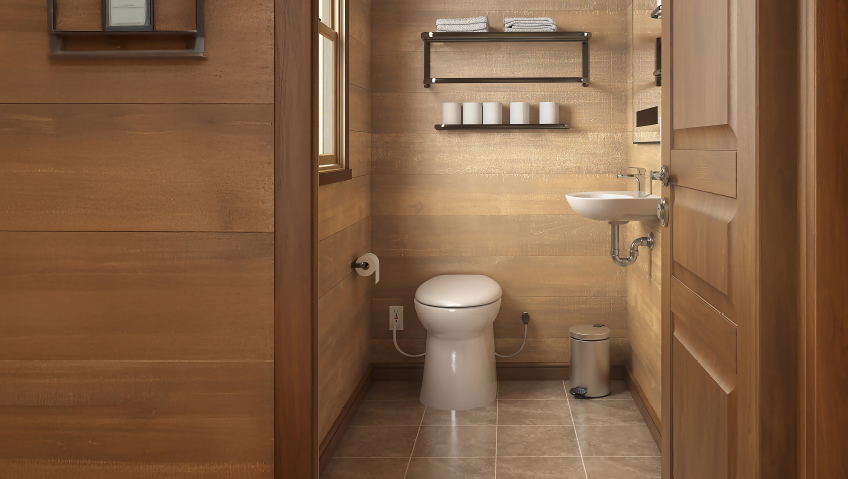In business, there are imitators and there are innovators, and the Labrie name is known worldwide for its pioneering solid waste industry trucks. Respected for groundbreaking designs and exceptional quality, Labrie Environmental Group makes waste management, compost, and recycling easier and more efficient for municipalities across North America.
Supported by an extensive network of Certified Distributors, Labrie Environmental Group offers products and support for all customers, including field service representatives, a 24/7 customer support system, repairs, and service and parts through LabriePlus™.
For over 50 years, The Labrie Group has proudly distributed and supported its brands throughout the solid waste industry. These include Labrie™ side loaders, Leach™ rear loaders, and Wittke™ front loaders.
Decades of quality and service
The history of Labrie goes all the way back to 1930, when Equipement Labrie was founded. Wittke Iron Works started light manufacturing of farm implements in 1936. The legacy of Leach goes back even further to 1887, when Elmer Leach started producing logging tools at Oshkosh, under the Oshkosh Logging Tool Company.
Over the years, Labrie, Wittke and Leach introduced many innovative products to the market. In 1947, Leach unveiled the Leach Packmaster for waste collection. For Labrie, 1980 was one of the company’s biggest years on record, when it transitioned from distributor to manufacturer. The early 1980s saw Wittke enter the refuse body business with the Burro, a unique side-loader, followed by the Pegasus and Starlight front loaders about a decade later. And for Labrie, the 1980s and 1990s welcomed the Top Select™, the Labrie Expert 100 front loader, the Labrie 2000, and the Optimizer Front Loader, to name a few.
“Through innovation and timely acquisition, Labrie Environmental Group has built itself into a major force in the North American market, and sports its most advanced and diverse product line ever,” states the company.
When recycling started becoming popular in the early 1980s, the company created a curbside recycler. Used for manual and semi-automated residential recycling collection, the Top Select was the first ever recycling unit built, “and continues to be the most sold unit in its class in North America,” according to the company.
From there, the company continued creating trucks designed to transport solid waste and automated solid waste, primarily concentrating on side-loading vehicles, manual or automated with an arm. After manufacturing products for residential needs, Labrie started working on commercial trucks for refuse management companies, providing them with front loader solutions.
The years to come saw acquisitions of rear-loader brand Leach, and Wittke, known for its front loaders. By 2006, the company had amassed a whole portfolio of products—residential, commercial, side loader, rear loader, front loader—and soon acquired the after-sales division of Federal Signal Corp. (FSC). Stated the company at the time, the transition “positions Labrie as a top-tier North American leader in waste management equipment, in line with our corporate strategy to consolidate our offering within the solid waste management equipment industry.”
Other innovations soon followed, including an e-commerce parts purchasing portal and an online truck configuration tool. This enabled distributors to go online, configure, and order trucks. Shortly after, the company acquired Pendpac and the Pendulum Packer. With a unique ‘pendulum’ technology that moves from three o’clock to six o’clock, then back to three, it is designed to collect solid and organic waste. Unlike trucks from other manufacturers, it is designed so liquids from organic matter are contained inside the truck, instead of spilling onto streets.
“The pendulum is really good for food waste, because it is self-cleaning and watertight, since food waste can be really sloppy,” says Steve De George, Regional Sales Manager. It can be used for solid waste as well, but the watertight and self-cleaning ability is the big advantage. “The liquid content is very high, so you need a body that doesn’t leak.”
Not all trucks are created equal
Throughout its history in the solid waste industry, Labrie Environmental Group has earned a reputation for providing well-designed, long-lasting, and revolutionary products in its three brands, Labrie, Leach and Wittke.
“We are not selling companies, we are selling trucks,” says Marketing Manager François D’Amours of the company, which transitioned from distributor to manufacturer in 1980. “The idea is, we are selling Leach rear loaders, Labrie side loaders, and Wittke front loaders. They each have their own website, each have their own identity, and own brand penetration.”
Purchasing the chassis from other manufacturers, Labrie Environmental Group then manufactures truck bodies. Long before the two are married, modifications are made, including controls, packers, and arm mechanisms. And although some trucks used for hauling trash, compost, or recycling may appear similar, their features are different depending on where they are used and how. A truck navigating narrow alleys, for example, needs to be smaller and have a different type of arm than a truck intended for main roads.
Some municipalities prefer automated trucks, others manual. To make selection easier, The Group and its brands’ websites feature an Application checklist where customers can narrow down their choices by residential, commercials, organics, alleys and tight areas, electric vehicles (EV), compressed natural gas (CNG), and other criteria.
Along with style and vehicle type, there are other factors to consider, such as the truck’s size, and where it will be used. Depending on the location and requirements, truck construction varies. Sunny California is extremely environmentally and weight-conscious, and the state demands lighter-bodied trucks which put less wear and tear on roads. In the middle of the United States, trucks tend to be a bit heavier, and able to transport bigger loads of waste, compost and recyclables. Along the east coast and in cities like New York, where extreme temperatures are the norm, super duty trucks are designed and manufactured specifically for their environment. “It’s a different environment entirely,” explains De George.
Customers not only have individual needs for waste collection, but must also abide by regulations, be they state, provincial, municipal, or national. “We have to adhere to those,” says D’Amours.
Experienced and aware of rules and regulations, Labrie Environmental Group provides clients with a range of non-standard options tailored to their needs, another way in which The Group stands apart from the competition.
“That’s the difference between Labrie Environmental Group and others,” says D’Amours. “We meet the challenge and develop new ideas with our customers, and that creates an innovation cycle. It turns all the time, and it’s been like that since the company started in 1980. Research and development is not only a department here, it is our way of doing business, and sees us develop new innovations that are often copied.”
Through its extensive distributor network—and direct sales in Québec—Labrie Environmental Group sells trucks across North America, and some to international customers. Orders can be for as little as a single truck or as many as 200. The Group’s many distributors also have the means to service trucks, and are supported by the company for training, parts, knowledge, and more. Some distributors have been part of the Labrie Environmental Group family since the 1980s, a testament to the company’s longevity and industry-wide reputation.
While many of the company’s trucks are powered by diesel or CNG, Labrie is seeing an increase in requests for EVs. No matter the type of truck, Labrie Environmental Group and its brands remain committed to meeting the waste collection needs of all customers. Says D’Amours: “Quality, fit, and finish is what we are known for, and a very strong service network behind that.”






